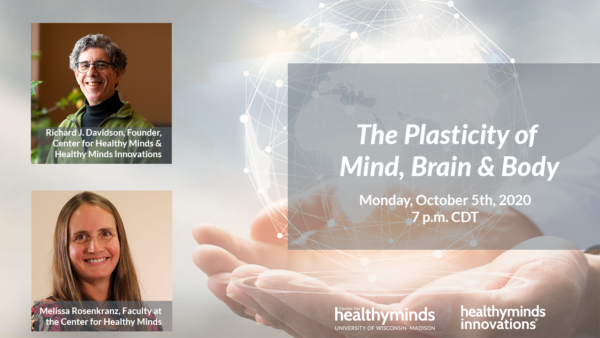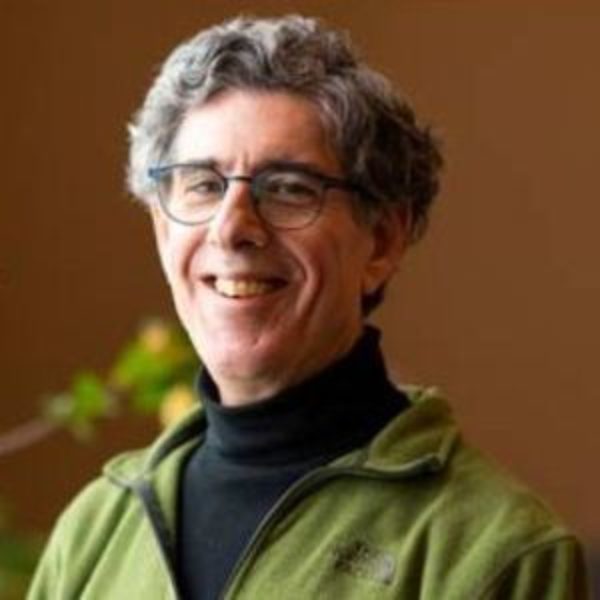
Cutting-edge science suggests that meditation can have profound and lasting effects on our brains and behavior. But how?
Scientists at the Center for Healthy Minds at the University of Wisconsin–Madison have spent years understanding the impact of contemplative practices on the mind and body. Center Founder Richard J. Davidson and Center Faculty Melissa Rosenkranz explore a decade of scientific discoveries that set the foundation for healthier societies and how we can each take care of our own mind.
Watch the Replay

Richard J. Davidson
Founder, Center for Healthy Minds & Healthy Minds Innovations, William James & Vilas Professor of Psychology & Psychiatry, University of Wisconsin–Madison
Davidson is best known for his groundbreaking work studying emotion and the brain. A friend and confidante of the Dalai Lama, he is a highly sought after expert and speaker, leading conversations on well-being on international stages such as the World Economic Forum, where he serves on the Global Council on Mental Health. Time Magazine named Davidson one of “The 100 Most Influential People in the World” in 2006.
Davidson's research is broadly focused on the neural bases of emotion and emotional style as well as methods to promote human flourishing, including meditation and related contemplative practices. His studies have centered on people across the lifespan, from birth through old age. In addition, he’s conducted studies with individuals with emotional disorders such as mood and anxiety disorders and autism, as well as expert meditation practitioners with tens of thousands of hours of experience.

Melissa Rosenkranz
Faculty at the Center for Healthy Minds, Distinguished Chair in Contemplative Neuroscience, Assistant Professor of Psychiatry, University of Wisconsin–Madison
Rosenkranz studies the neural-immune and biochemical mechanisms by which individual differences in response to emotion alter resilience to and the progression of disease. Her research also looks at the impact of meditation practice on emotion response and, subsequently, on the neural-immune and biochemical mechanisms underlying resilience or vulnerability to disease.
She is particularly interested in how our understanding of mind-body interactions gets incorporated into how medicine is practiced. Rosenkranz believes it’s important for academic work to go beyond the University to impact the lives of everyday people – through both understanding the mind-body connection to improve individual health and well-being and public policy to promote health and manage illness.

The Plasticity of the Mind, Brain and Body was a part of THE WORLD WE MAKE: 2020, a week-long series of virtual events that included lively conversation, well-being tips and the opportunity to hear from well-being experts and special guests, including His Holiness the Dalai Lama.

This event and others are supported by the generosity of individuals and organizations who share our vision of a kinder, wiser, more compassionate world.
A significant portion of our funding comes from supporters who give to the Center for Healthy Minds, enabling a variety of projects – whether it’s understanding how the brain works or bringing well-being skills out into the world.






